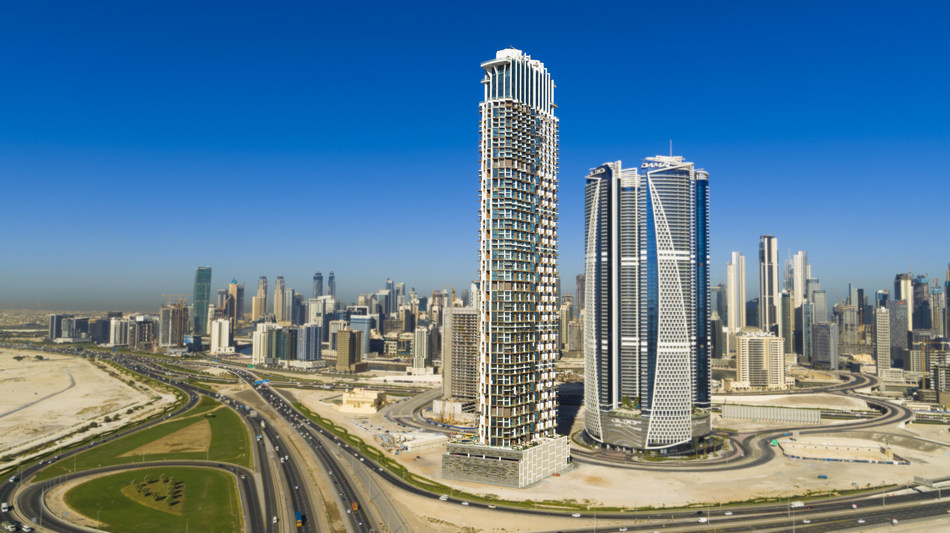Given her incontestable features- which include luxurious tourism, top-notch hospitality and real estate, Dubai takes pride in being the Paris of the Middle East and North Africa.
Economically, the city has, over the years, attracted businesses and keeps attracting the best talents from all walks of life. The ongoing pandemic has shown Dubai’s resourcefulness and determination to rise above all odds, especially in tackling the disease that has brought the developed global economy to its knees.
The foregoing has been consistently displayed by the government of the city through the incentivization of businesses for post-pandemic survival, thus making up the perks of excellent business practice offered by Dubai as a city and the United Arab Emirates as a country.
That said, should you decide to pursue entrepreneurial/business opportunities in Dubai or anywhere in the GCC region, it is important to note these three factors in the development of long- and short-term strategy:
1.Diversified Demography
Dubai and GCC represent a concentration of Arabs who are predominantly Muslim and adherents of Sharia law. Furthermore, I can attest to the beauty of the Arab culture which, sadly, is misrepresented by those who lack its understanding. Nevertheless, it does not take away the fact that this region is a business hub with an appetite for continuous growth for individual businesses as well as for the entire hub, a feat that is not limited by the misunderstanding and misrepresentation of religion and its beautiful people.
Fast forward to today, the UAE’s fact sheet shows that there are 200 nationalities living and working in the country. Although the diversity of its population is a strength, it could be a pothole for entrepreneurs who ignore the need for population or demography research. Any business with the desire to optimize its potential in this region must identify the demography for which it is mandated to provide value.
Target market in the region, requires a critical type of population breakdown or demography research, one that provides insights into the denomination of demography in relation to factors that impact their customer behavior and mannerism.
While cultural diversity cannot be over-emphasised, it should not make you ignore its demographic similarities. Both aspects have some perks which can/should be taken advantage of in the development of business strategy. Therefore, know what unites Dubai’s diversified populace with regards to what differentiates them. This holds the key to any startup’s success in the region.
2. 2-Year Startup Window
The most demanding period for start-ups is the first 24 months. It is considered a sustainability-test period, one that determines whether a startup’s business model can generate revenue that caters to its expenditures in the long-term.
With dexterity and hard work, Dubai’s startups survive and become economic employers of labor during this period. It is also a period when most businesses incur setup documentation problems, mostly due to ignorance, which is not considered a valid excuse.
It is a common issue to discover, (after setting up a business for 6+ months) that your set-up lacks documentation. This is followed up with fines as per the law for which non-payment constitutes the inability of the business to continue operation.
While ignorance tops the common excuse lists, rules and policies for businesses do change with immediate implementation or at mini-prior notice. To avoid this loophole that has the probability of wiping out a potential good business, business owners are advised to ensure triple-check documentation requirements with constant follow-up on updates on changes as development permits. Is this a good thing? Absolutely! It is a city that has learnt to be better and wastes no time in the implementation of the lesson learnt.
3.Robust Business Support Framework
Like entertainment and visual artistes, business owners and entrepreneurs are creatives who need certain frameworks on which they can mount their canvas and creation. The creative ability is one thing, the framework is another thing. In the context of business, such frameworks could be in financials, infrastructures, human network/event, and the opportunities they bring, technologies, just to mention a few. Some cities/countries have some of these frameworks to support their entrepreneurial prowess but Dubai being “The Dubai”, has it all or at least endeavors to have it all. However, Dubai, having all of it, does not necessarily mean you must use or deploy it all in the delivery of your operation. I would always advise my clients to start small and give themselves room to grow. Availability of an opportunity that framework provides does not necessarily mean that such window is a good thing. Know when to pursue and when to hold back. Some moves, though strategic could aid the end of business sooner than anticipated. Utilise framework as development permits. Evaluate the impact on current business operations, evaluate its sustainability before diving all into deployment. If the time is not right, retrace your steps till you can accommodate that input and the impact that follows.
In all, doing business in Dubai or anywhere in the GCC region requires a learn-as-you-go ability. The quicker you learn, the faster you earn. If you ever find yourself in dilemma of doing business in Dubai, take it on as a challenge by seeking help from the right quarters, it will always be worth it if you pay attention to details you would otherwise ignore.

